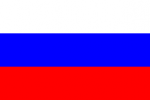
A senior official of the Russian Orthodox Church called for the end to the "monopoly of Darwinism" in Russian schools during a recent talk in Moscow, according to Reuters (June 9, 2010). "Darwin's theory remains a theory," Hilarion Alfeyev, the Metropolitan of Volokolamsk and a permanent member of the Holy Synod of the Patriarchate of Moscow, was quoted as saying. "This means it should be taught to children as one of several theories, but children should know of other theories too."
Alfeyev was addressing a group of officials from Russia's Ministry of Foreign Affairs, however, not education policymakers; Alfeyev is involved in a variety of ecumenical projects internationally and represents the Russian Orthodox Church in Brussels. According to Reuters, his talk was "dedicated to fighting 'fanatical secularism' of liberals hostile to religion, and called for dialogue with moderate secularists and cooperation with Catholics against common foes."
The veteran dissident Lyudmila Alexeyeva, a recipient of the European Parliament's 2009 Sakharov Prize for Freedom of Thought for her work with the civil rights group Memorial, described Alfeyev's call for the teaching of "other theories" as "a dangerous idea," vowing, "we will do all we can to stop it." According to Reuters, "She said it was unlikely religious teaching would replace Darwin in the national curriculum, but it could find its way into some schools with enough pressure from the Church."
Poll data about the acceptance of evolution in Russia is mixed: a 2005 poll reportedly found 26% of Russians accepting evolution and 49% accepting creationism, but a 2003 poll reported that 44% agreed with "Human beings are developed from earlier species of animals"), and a 2009 poll reported (PDF) that 48% of Russians who "know something about Charles Darwin and his theory of evolution" agreed that there was sufficient evidence for the theory. (In comparison, only 41% of Americans agreed.)
As for what ought to be taught in the schools, it seems that Alfeyev's proposal might be popular. The same 2009 poll indicated (PDF) that 53% of Russians agreed with "Evolutionary theories should be taught in science lessons in schools together with other possible perspectives, such as intelligent design and creationism," with 13% preferring that such perspectives be taught instead of evolution; only 10% agreed with "Evolutionary theories alone should be taught in science lessons in schools."
Yet despite the lead sentence in the Reuters story, it is unclear whether the Church is endorsing Alefeyev's call. According to Inga Levit, Uwe Hossfeld, and Lennart Olsson, discussing "Creationism in the Russian Educational Landscape" in Reports of the NCSE in 2007, the Russian Orthodox Church "has no officially declared position toward 'scientific creationism' ... [which] plays no significant role in official theological discourse, but unofficially remains a significant part of the Orthodox theological landscape."
Levit, Hossfeld, and Olsson also report that creationism in Russia is frequently visible as part of a sectarian project to impose Orthodox views in the public school system. Although Russian Orthodoxy is the dominant religion in Russia (with 63% of the population, according to a 2007 report), there is a significant Muslim minority (6%), as well as a sizable population of non-believers (16%), which might make it unfeasible for the Russian government to capitulate to sectarian proposals to change how evolution is taught.
